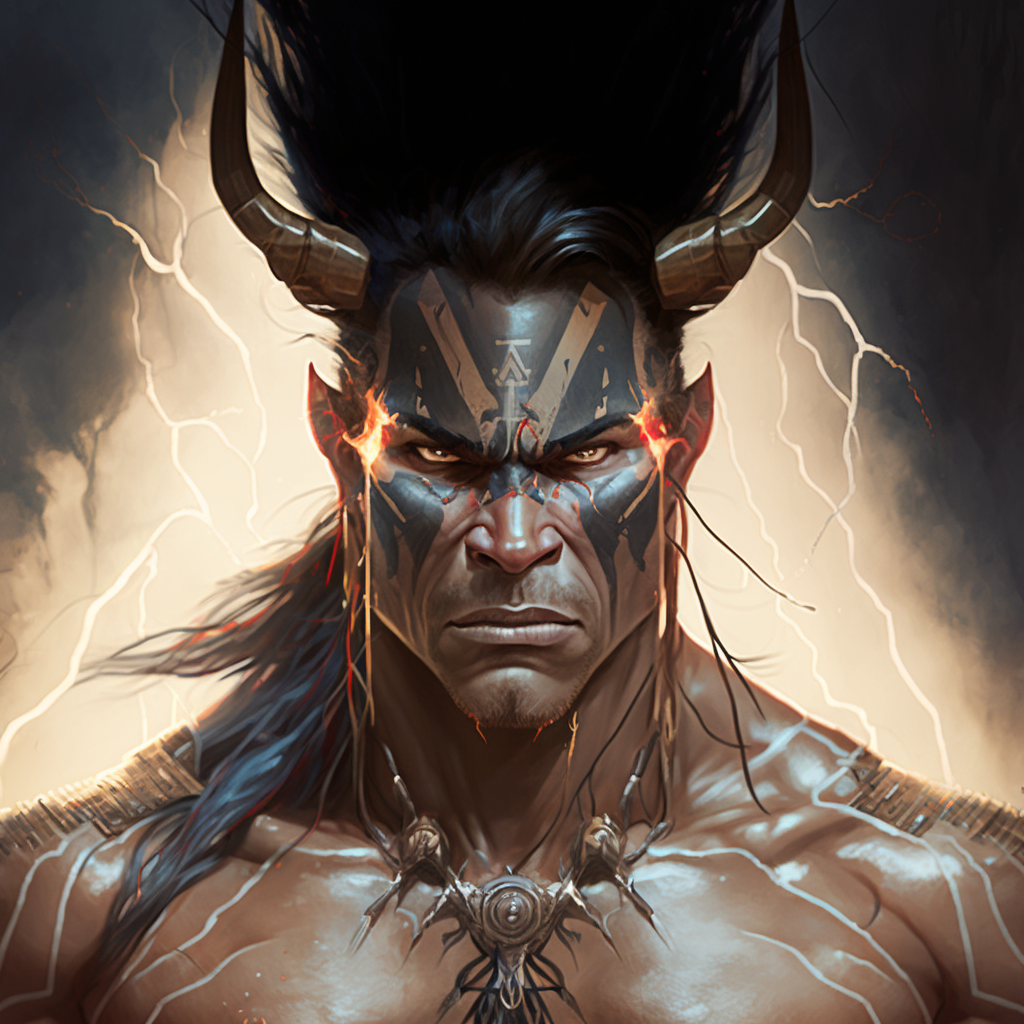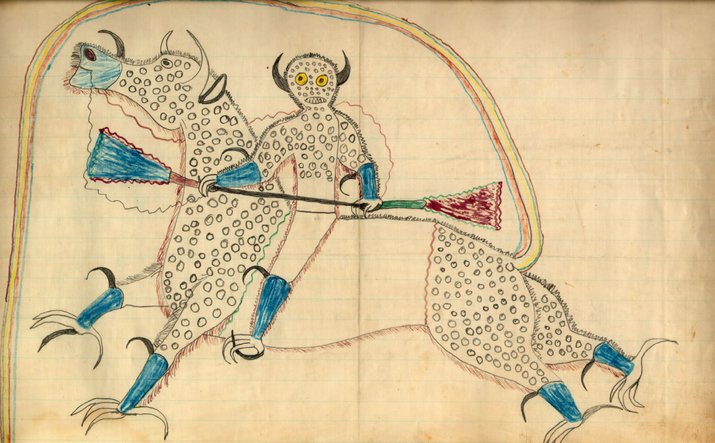Haokah

Haokah is a unique deity who embodies the essence of the sacred clown in the culture of the Lakota people. He is a mischievous and unpredictable force, who moves and reacts in an opposite fashion to those around him. He is known for his boisterous laughter and jovial nature, but this often belies a deeper, more complex personality.
- Pantheon: North American Pantheon
- Deity Title: Heyoka, the Sacred Clown
- Deity Symbol: Two horns
- Home Plane: The Beastlands, The Feywild
- Deity Level: Intermediate deity
- Alignment: Chaotic Neutral
- Aliases: The Contrarian, The Jester, The Satirist
- Superior: None specified
- Traditional Allies: None specified
- Traditional Foes: None specified
- Divine Artifact: The Thunder Drum, a sacred drum said to harness the power of thunder and lightning
- Servants: None specified
- Servitor Creatures: Thunderbirds, other creatures associated with thunder and lightning
- Sacred Animal: Buffalo
- Manifestations: Speaking, moving, and reacting in an opposite fashion to those around them, ability to control lightning and thunder
- Signs of Favor: Unpredictable and strange events, spontaneous fits of laughter or crying, sudden storms
- Worshipers: Tricksters, rebels, comedians, those seeking chaos and unpredictability in their lives
- Cleric Alignments: Chaotic Neutral, Chaotic Good, Chaotic Evil
- Specialty Priests: Bards, Rogues, Druids
- Holy Days: None specified
- Portfolio: Trickery, lightning and thunder, unpredictability, laughter, tears
- Domains: Chaos, Weather, Trickery, Luck, Madness
- Favored Weapon: Bolas
- Favored Class: Bard, Rogue, Druid
- Favored Race: Halfling, Gnome, Human
- Duties of the Priesthood: To challenge societal norms, to spread chaotic and unpredictable behavior, to bring laughter and joy through unconventional means, to use their abilities to control the weather to protect their communities
- Major Cult/Temple Sites: None specified
- Benefits: Increased emotional resilience, Increased unpredictability, laughter and tears, the ability to control weather and bring lightning, protection from harm when acting in the name of chaos and trickery. protection from natural disasters, the ability to bring laughter and joy to those around them.

Haokah is the God of Thunder and Lightning, and his domain is both the sky and the earth. He is often depicted with two horns and is known for his tempestuous emotions, which he portrays in a manner that is opposite to the norm. He is said to laugh when he is sad and cry when he is happy, making him a challenging and enigmatic deity to understand.
Haokah’s followers are often those who embrace his paradoxical nature, such as tricksters, jokers, and other contrarians. He is revered by those who appreciate the art of satire and those who wish to challenge the status quo. He is also a protector of his people, using his power over thunder and lightning to defend the Lakota from their enemies.
Haokah’s divine artifact is a powerful weapon that harnesses the power of lightning and thunder. He uses this weapon to strike down his foes and to bring his wrath upon those who would do harm to his people. He is also known to use his powers of shape-shifting to infiltrate the camps of his enemies, gathering information and wreaking havoc from within.
Haokah’s holy days are celebrated by his followers with great joy and revelry. They engage in pranks and jests, reenacting the antics of their deity in his honor. The duties of Haokah’s priesthood are to spread joy and laughter, to protect the people, and to uphold the traditions of the Lakota culture.
Overall, Haokah is a deity who is both revered and feared by his followers. He is a force of nature that cannot be tamed or controlled, and his presence is both chaotic and exhilarating. Those who are drawn to his power are inspired to embrace their individuality and to challenge the status quo, knowing that Haokah is always there to protect them.

 Buy me a coffee
Buy me a coffee